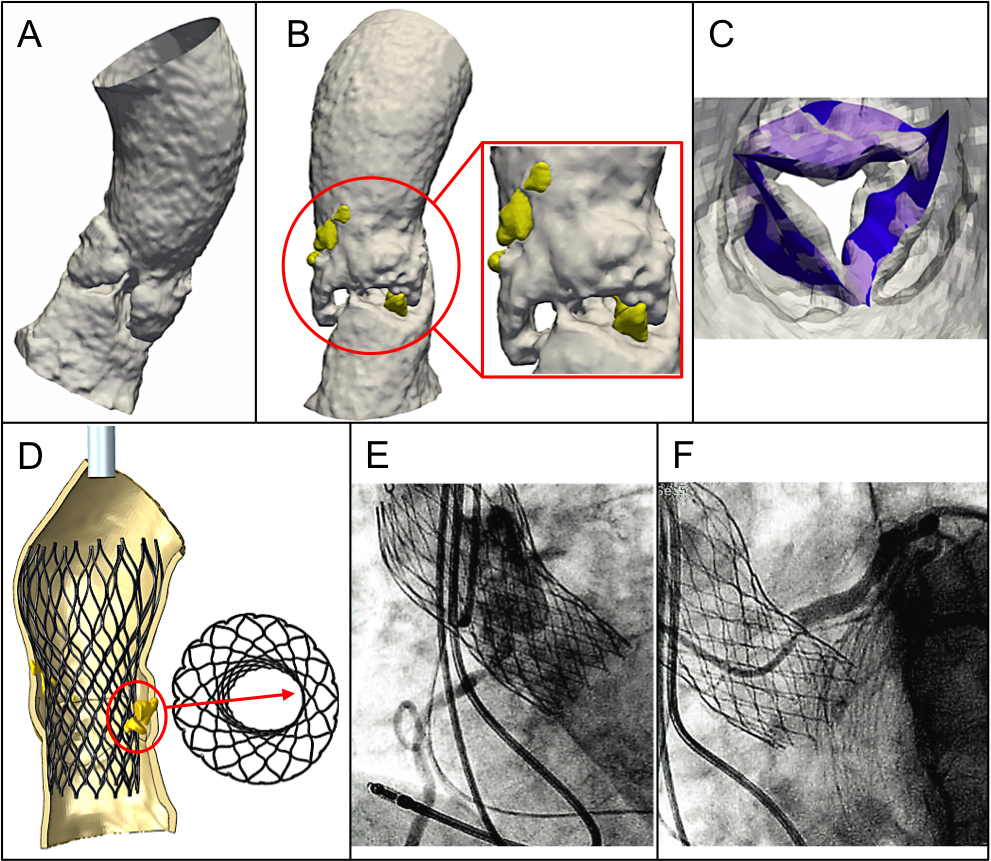Transcatheter Aortic Valve Implantation (TAVI) consists in replacement of the Aortic Valve of the heart with a steel frame prosthesis through the blood vessels, without stopping the heart beating. Minimally invasive approaches are the treatment of choice for patients at high surgical risk.
For clinicians, such complications are difficult to predict due to patients variability (aortic root geometry, distribution and dimensions of calcific blocks), which can considerably affect prosthesis implantation landing to poor procedure outcomes.
In the context of personalized medicine, Finite Element Analysis (FEA) represents a helpful mathematical tool able to support interventional cardiologists during the procedure planning, since it allows the surgeons to understand potential complications associated with TAVI procedure for a specific patient, giving reliable predictions of post-implant device configuration and performance.

Our research group (Eng. Laura Mazzocchi, Dr. Simone Morganti, Prof. Ferdinando Auricchio) is working with the Centre Cardiologique du Nord (Dr. Francesco Nappi), in Paris: pre-operative CT images are used as starting points to create a patient-specific geometrical model of the aortic valve complex. The finite element solver Abaqus (Dassault Systèmes, Simulia, Providence, RI, USA) is used to perform simulations of prosthesis implantations of self-expandable Medtronic CoreValve size 26 (Medtronic Inc., Minneapolis, MN, USA) in native roots.
For more information:
- Clinical Study published on BioMed Research International
- Abstract accepted by Interventional Cardiology (Journal of the American College of Cardiology – JACC)
March 11th, 2019

